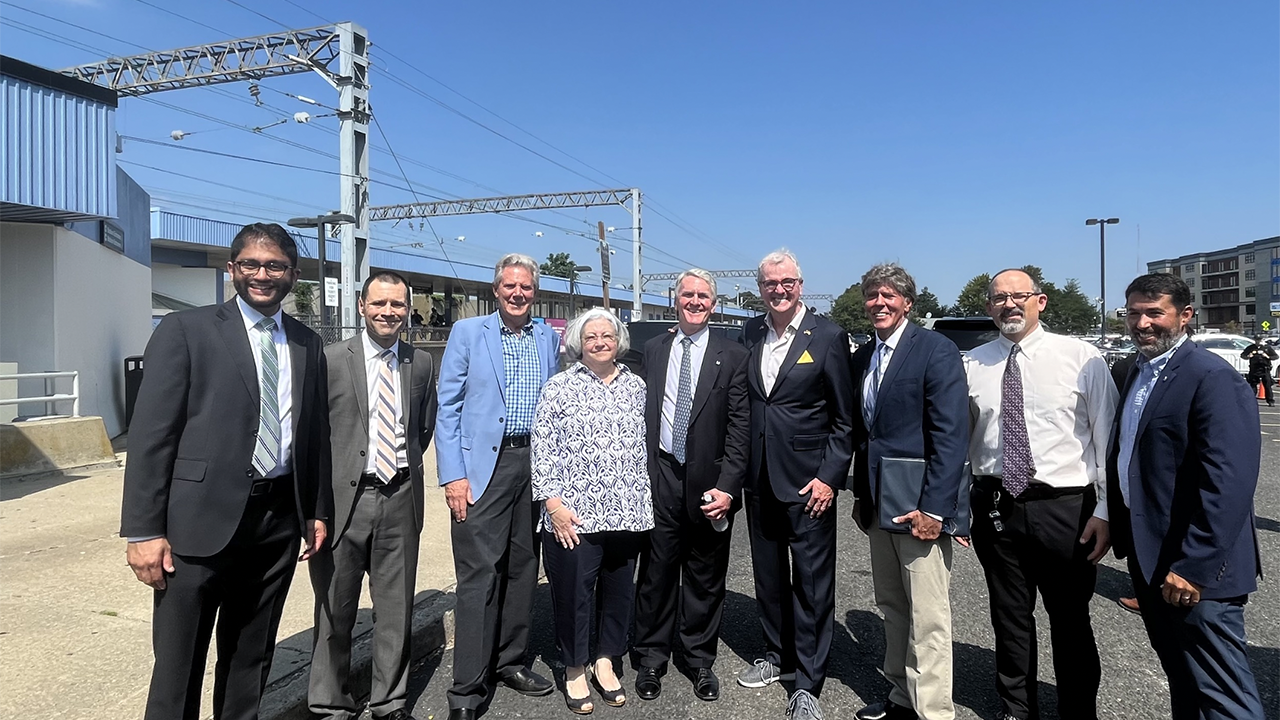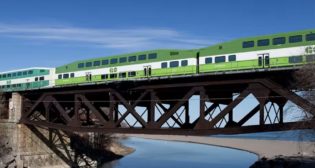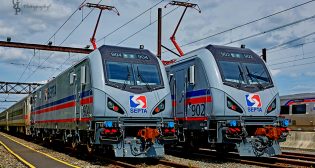
Transit Briefs: NJ Transit, Amtrak OIG
Written by Marybeth Luczak, Executive Editor
On Sept. 6, Rep. Frank Pallone Jr. (D-N.J.) reported via social media platform X: “I was joined by @GovMurphy to announce that @USDOTFHWA and @FTA_DOT has granted New Jersey the flexibility to use $425 million in federal funding to upgrade transit infrastructure, including an additional $7.9 million for improvements to the Long Branch Train Station.”
The Federal Highway Administration (FHWA) approves $425 million in additional federal fiscal year funding for New Jersey Department of Transportation (NJDOT) and New Jersey Transit projects. Also, the Amtrak Office of Inspector General (OIG) reports that America’s Railroad “is positioning itself to comply with Infrastructure Investment and Jobs Act [IIJA] operations, policy and funding requirements.”
NJ Transit
FHWA has awarded an additional $425 million to NJDOT for transportation projects as part of the federal August Redistribution process, NJ Transit reported Sept. 6.
“Each year, August Redistribution provides an opportunity for the FHWA to increase spending authority to state DOTs based on the availability of unused funds,” the transit agency said. “Use of these funds must be approved by the FHWA no later than Sept. 30, 2023. The FHWA provided $425 million in redistributed spending authority. This is the highest amount New Jersey has ever received, and the fourth-highest award nationwide, only behind California, Pennsylvania and Texas.”
The additional funding will be split, with $315 million for NJ Transit projects and $110 million for NJDOT projects.
The NJ Transit projects include:
- Long Branch Station Pedestrian Tunnel, $7.9 million. The pedestrian tunnel will improve station access and reconnect the east and west halves of Long Branch, which are currently divided by the above-ground rail alignment.
- Watsessing Avenue ($31.6 million) and Roselle Park ($9 million) station modernizations. These projects include new platforms and canopies and the installation of elevators and ramps to allow for full accessibility.
- Replacement of six bridges, $106.5 million. New bridges will be built in Little Falls (one), Readington (one), High Bridge (one), Bayonne (one), and Waterford (two).
- Delco Lead, $33.8 million. Part of the Resilience Program, NJ Transit said this project will “construct a storage location at a strategic location along the Northeast Corridor that is not flood-prone.”
- Hoboken Yard Improvements, $5 million. This project includes design and construction of inspection pits that are required for periodic inspections of multilevel railcars.
- Hilton Bus Garage Modernization and Electrification, $68.1 million.
- Meadowlands Garage Battery Electric Bus Depot, $37.7 million.
- Passaic Bus Terminal, $15 million.
According to NJ Transit, NJDOT will use the funds for a variety of projects that will be advertised or awarded by the end of the year. They include pavement preservation, bridge preventative maintenance, bikeway and pedestrian safety improvements, and “projects that will ease congestion and improve safety.”
“This significant capital funding will advance critical projects that are not just investments in infrastructure, but strategic investments in New Jersey’s future,” NJ Transit President and CEO Kevin Corbett said.
Amtrak OIG
Amtrak OIG on Sept. 6 released a report (above) updating Amtrak’s efforts to use, account and report on direct IIJA funding it will receive to upgrade capital assets, acquire new trainsets and reduce its backlog of deferred capital projects. As of July 2023, Amtrak has received about $731 million in IIJA funds and spent $638 million, the report found.
In total, the IIJA provides $66 billion for passenger and freight rail improvements. Of this, Amtrak will receive about $22 billion in direct funding, and this funding is disbursed by the Federal Railroad Administration based on Amtrak’s forecasts for the next quarter’s spending. “Before Amtrak can spend these funds, the FRA must approve a statement of work for each project,” according to Amtrak OIG, which noted that in addition to the direct funding, Amtrak could access or benefit from as much as $44 billion through various grant programs funded through the IIJA and administered by FRA.
Amtrak OIG reported that in fiscal year 2022, Amtrak “proactively established company-wide plans and processes to serve as the foundation for complying with the IIJA’s operations, policy and funding requirements.” They included establishing an IIJA implementation committee, developing an IIJA tracker, training on IIJA grant compliance and reporting requirements, and communicating management’s expectations “for the responsible use of IIJA funds.” Amtrak also developed a spending plan for IIJA funds in December 2022 as required by the law.
According to Amtrak OIG, America’s Railroad plans to allocate most of the $22 billion in direct IIJA funding to seven major areas: spending $6.62 billion acquiring Amtrak Airo intercity trainsets, and constructing or modifying maintenance facilities to service them; $4.94 billion to replace its long-distance fleet and diesel locomotives; $2.78 billion to address deferred capital projects and reduce its inventory of obsolete assets; $2.3 billion to upgrade or modify maintenance facilities; $1.74 billion to bring specific stations into compliance with the Americans With Disabilities Act; and $1.49 billion for participation in the FRA’s Federal-State Partnership for Intercity Passenger Rail grant program, which will help fund projects like the Baltimore and Potomac Tunnel replacement, Connecticut River Bridge replacement and the New York Penn Station expansion. Amtrak plans to use the remaining funds, about $1.7 billion, “to address contingencies for IIJA-funding projects, as a set aside for unforeseen risks, and for operating expenses in support of IIJA capital projects,” according to Amtrak OIG.
Amtrak OIG said it did not make recommendations in this report, noting that “it was too early to assess the effectiveness of Amtrak’s plans and processes.” It committed, however, “to continuing to monitor the company’s progress and has initiated audits of individual IIJA-funded projects, like Amtrak Airo, to assess the company’s management of them.”



